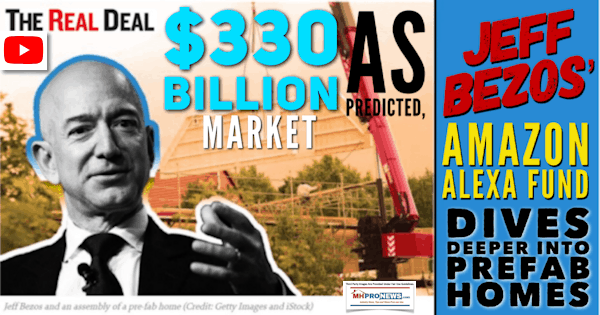
“We love working with companies that make a world positive impact on everyday lives, said Andrew Beebe, managing director of Obvious Ventures, as part of a statement to MHProNews. “Plant Prefab is focused on dramatically improving efficiencies and environmental responsibility in the $330 billion market for new homes in the US. With increased costs, labor shortages, reduced affordability, and the enormous impact housing has on carbon emissions, there are few challenges more important than creating more accessible, healthy housing,”
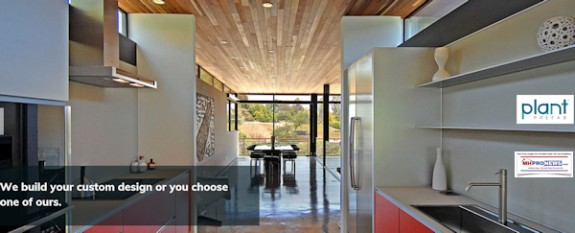
Those are all points that the Daily Business News on MHProNews has raised for investors and industry pros to consider for several years. We noted that last year, Amazon began marketing for third-parties homes, including container housing that sells for under $40,000 a unit.
Factory Built Home Companies, True Game Changer – Here, Now – Impact on Manufactured Housing?
Amazon has also been selling via their site pre-cut kit homes, a concept similar to what Sears and Roebuck used to offer a century or more ago.
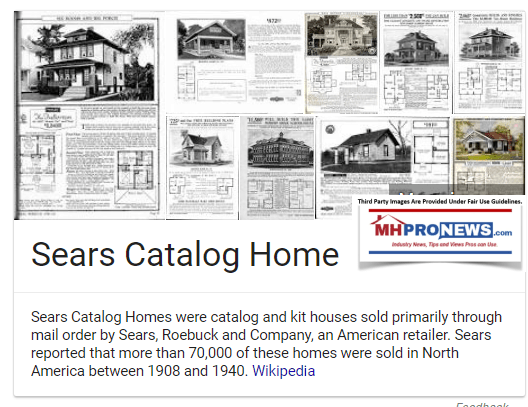
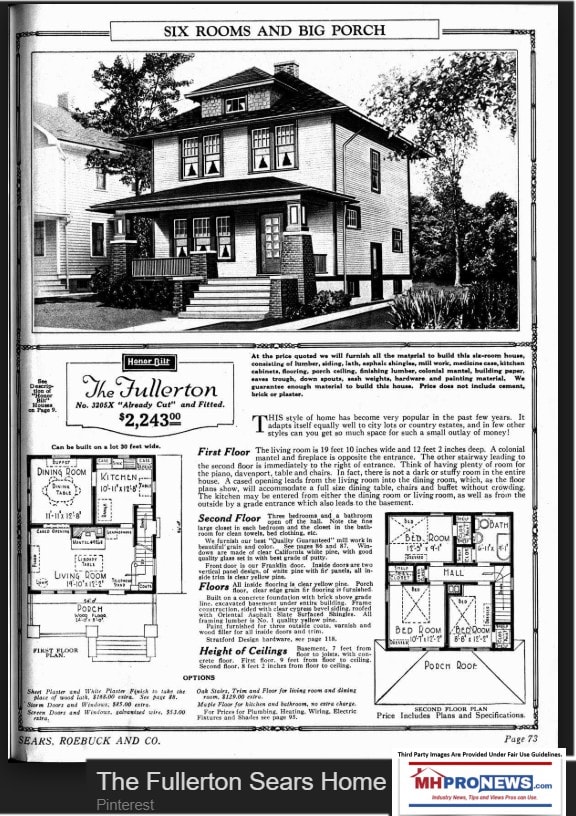
Now, through Amazon’s Alexa Fund, they’re taking the next step.
An array of media have given them considerable free ink, virtually all of it positive.
Plant Prefab, a Rialto, Calif., based factory-builder, tells MHProNews that they’ve raised $6.7 million “Plant Prefab’s Series A funding included Obvious Ventures and the Amazon Alexa Fund.”
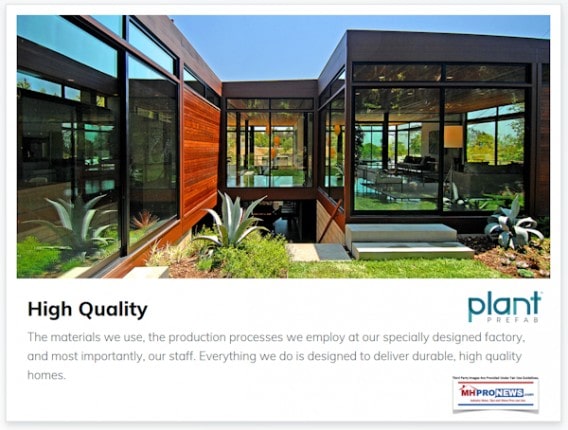
The new funding will go toward investments in “new senior hires, building the marketing and sales team, and developing Plant Prefab’s patented Plant Building System,” said Globewire to MHProNews.
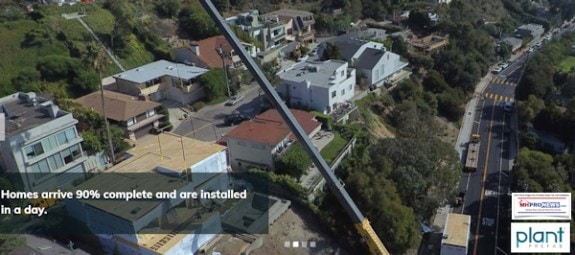
“Voice has emerged as a delightful technology in the home, and there are now more than 20,000 Alexa-compatible smart home devices from 3,500 different brands,” said Paul Bernard, director of the Alexa Fund. “Plant Prefab is a leader in home design and an emerging, innovative player in home manufacturing. We’re thrilled to support them as they make sustainable, connected homes more accessible to customers and developers.”
Alexa Fund added as new investor, marking Amazon’s first known direct investment in a home prefabrication/construction company.
In 2016, the Plant Prefab was spun out of LivingHomes, “a design and development company that’s designed and built dozens of award-winning prefabricated homes, including the nation’s first LEED Platinum home.”
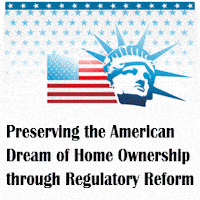
According to a statement by Plant Prefab Founder and CEO Steve Glenn, “In the housing-crunched major cities like Los Angeles, New York and San Francisco, along with areas like Silicon Valley, it takes too much time to build a home from groundbreaking to occupancy, and labor shortages, construction delays and increased construction costs are exacerbating this trend even further — and making homes increasingly less affordable.”
That’s a theme thousands of factory-built housing industry pros know all too well. Note that Glenn takes direct aim at manufactured housing, mis-characterizing HUD Code homes as “Most existing prefabrication companies in the US focus on standard, low quality, non-sustainable mobile and modular homes — for suburban communities.”
Glenn then juxtaposes what they do with manufactured and modular builders by saying, “Plant Prefab is unique in that we’re focused on custom, high quality, very sustainable homes and we have a special facility and a patented building system optimized for this. We build based on client’s architects or clients can select from a growing number of homes we offer from world-class architects, all of which can be customized for specific lots and client needs. By building in an all-weather facility with lower cost and staff labor, we offer clients a more reliable, time and cost-effective alternative to local, urban general contractors.”
Billion Dollar Startup Modular Builder, Using Robotics, Could Soon Rival Clayton Homes’ Total Sales
Rephrased, they sound more like they are targeting more of a U.S. based, Soft Bank backed Katerra, or international player, Revolution Precrafted homes.
Plant Prefab operates out of a 62,000 square foot facility in Rialto, California. They point to recent projects they’ve done where they “installed 26 units in California and Utah as well as a multifamily project in Berkeley.”
Keep in mind, that a few million bucks from Bezos could quickly lead to far more from the world’s richest man. Architecture says that the Alexa Fund can provide up “to $100 million in venture capital funding.” But as the world richest man, that too is far from Bezos’ limit.
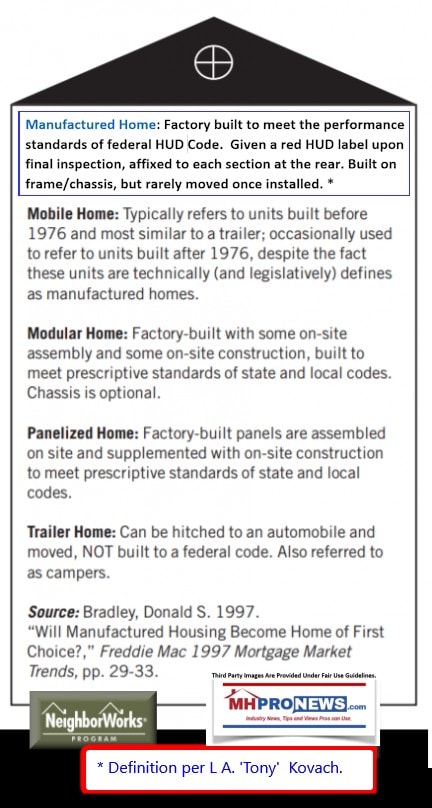
Independent and even larger corporate manufactured housing professionals, outside of the Berkshire Hathaway family of brands, arguably have to realize that Amazon, Google, Facebook, and other giants could quickly become a major player in factory built homes, including modular or manufactured homes.
With Buffett, Bezos and JP Morgan-Chase’s Jaime Dimon teaming up to carve out a bite from healthcare, what’s to keep some array of multibillion-dollar conglomerates from crowding out factory-builders through their money and political influence?
Thus MHProNews’ advocacy for antitrust action, and a new post-production association. That later is similar to a call from the Manufactured Housing Association for Regulatory Reform (MHARR), which has made a similar call. See the related reports, linked below. “We Provide, You Decide.” © ## (News, analysis, and commentary.)
(Related Reports are further below. Third-party images and content are provided under fair use guidelines.)
1) To sign up in seconds for our MH Industry leading emailed news updates, click here.

2) To pro-vide a News Tips and/or Commentary, click the link to the left. Please note if comments are on-or-off the record, thank you.
3) Marketing, Web, Video, Consulting, Recruiting and Training Re-sources

Related Reports:
Survey Top 2017 PreFab, Modular, Tiny and 3D Printed Housing News Stories
https://manufacturedhousingassociationregulatoryreform.org/mharr-releases-study-recommending-independent-collective-representation-for-post-production-sector/
